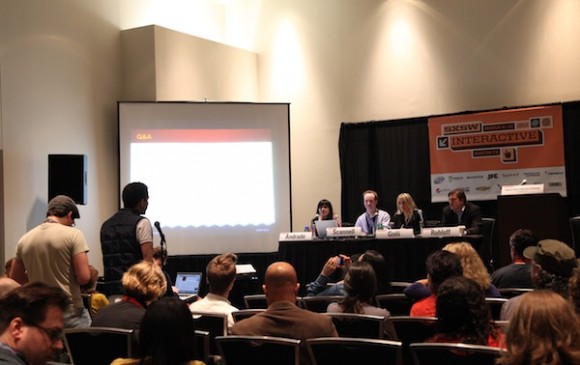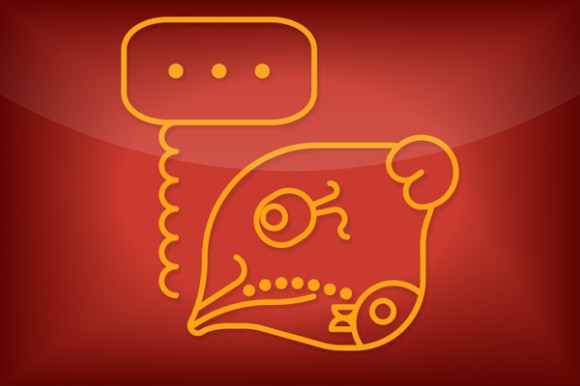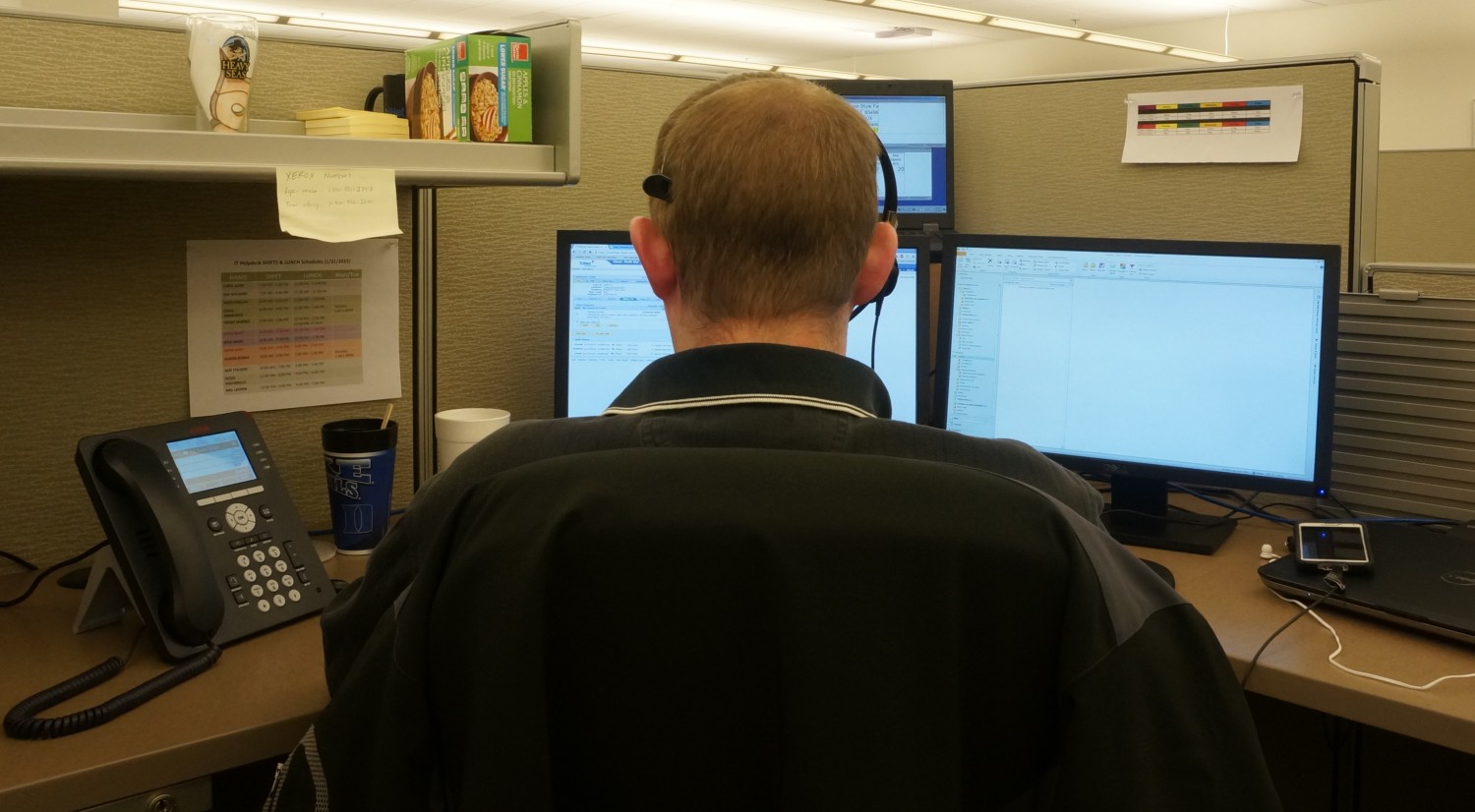aNewDomain.net — Open source developers are working to make the online community more inclusive — by putting endangered spoken and written languages online. Here’s how they’re doing it. Our Madison Andrews reports.
Of the 6,000 languages currently spoken today, UNESCO estimates that approximately half will be extinct by the end of this century—that’s 3,000 languages. Gone. But thanks to the work of people like Kara Andrade and Kevin Scannell, some of those languages will survive and even thrive in the digital age.
“It’s incredibly meaningful to start using technology to include a group of people that are isolated socioeconomically, but are also being left out of the conversation because their language isn’t even spoken online,” said Andrade, founder of the Central American citizen journalism project HablaCentro. “Imagine if you went on the Internet and it was only in Chinese—how would you feel?”

Kara Andrade, Kevin Scannell, Maite Goni, and Peter Rohloff at SXSWi panel Indigenous Tweets: Visible Voices & Technology.
Image Credit: Madison Andrews
It’s an eye-opening question, and one that Andrade hopes more people will begin to seriously consider. At a SXSWi session called Indigenous Tweets: Visible Voices & Technology, she and a panel of experts discussed how they are using tech to make the Internet more inclusive. Kevin Scannell, an MIT graduate and professor at the University of Missouri in St. Louis, said open source software is key.
“Open source is a big part of what I do,” said Scannell. “It enables language groups that have no other way of producing software in their languages … because there’s just not the money or the commercial interest … to have things like a browser, games, or an office suite. They just have to invest the time and effort to do the translations.”
It took Scannell about a year to translate the Mozilla browser into Irish Gaelic. And that’s a language with an extensive written tradition.
Some indigenous languages are spoken languages only, so translating them for use online is an enormous hurdle. Take Chichewa. More than seven million people in Malawi speak it. The linguistic hurdles of translating a browser for such an all-oral language are daunting. You literally have to invent new words to describe basic online functions.
“Why don’t we have applications like Google Translate that are voice-activated?” Andrade asked. “Why couldn’t we do that for some … languages that aren’t written, but are just spoken?”
There’s no technological impediment for that solution, Scannell says. The main problem? A lack of coordinated funding. All four of the Indigenous Tweets panel participants—those included Maite Goni, who is working to revitalize Basque culture through digital literacy education, and Peter Rohloff, who is developing translations of indigenous Guatemalan languages—said public non-profits like the National Science Foundation (NSF) were funding their work.
Image Credit: Brad Eller
In HablaCentro’s case, the hardware was readily available. Nearly everyone in Central America owns a cell phone. So implementing a mobile, Android-based citizen journalism project was a matter of creating the translation software, then providing the journalistic training to indigenous speakers so they could share their stories online.
“My ultimate goal is that there’s an incredible local journalism process with a product that is locally delivered and creates employment opportunities for people — so you don’t have to have journalists parachuting in from the US who have no clue about the reality of each country,” said Andrade.
That process has already been realized in five Central American countries—Guatemala, Honduras, Costa Rica, Venezuela and El Salvador. Still, the so-what factor seems remarkably under-discussed in the English-speaking community.
Some argue that it’s important to preserve endangered languages for the linguistic value they add to cognitive language research, while others fear an undifferentiated, Anglo-dominated mono-culture. But Scannell feels that what we stand to lose is nothing compared to the cultural loss of the communities themselves—their heritage, their tradition, their very identity.
“When the language dies, their sense of who they are, and everything that their community has been for thousands of years, is gone,” said Scannell. “We’ve seen that story play out over and over all around the world.”
Translating social networking platforms like Twitter and Facebook is especially important, because if young people perceive that the Internet is an English-language medium, they’re less likely to pass on the language to their children. Scannell has translated Facebook into several languages using open source software. In fact, Facebook actually has a translation tool kit similar to Mozilla’s, but they’ve capped their supported translations at 100 due to quality control issues.
“I understand that these companies view it as the outward face of their product—if you have a bad translation of Facebook into Swahili, then people who use it are going to form a bad impression,” said Scannell. “But at the same time, you have a community that really wants to do it. It’s hard for me to imagine any sort of technical or economic reason why they can’t maintain, say 200 languages instead of 100. But we’ve been unable to flip that switch and get these languages supported. So we’ve kind of gone our own route.”
Google.org launched a project last year called Endangered Languages that is, in its own words, “an online collaborative effort to protect linguistic diversity.” It enables people to upload photos, video, and text in their own languages.
But being able to actually use online tools like Google Search or Google+ would carry significantly more symbolic value for people who feel disenfranchised from the online community.
What remains to be seen is whether big software companies like Facebook and Google can find a financial incentive for supporting indigenous languages, and the developers working to revitalize them.













Great article Madison. I hope you follow this up with more on the subject — there are a lot of important questions on the borderline between the benefits of technology and the oppressiveness of a mono-cultural web that deserve much more coverage than they get in the average tech rag.